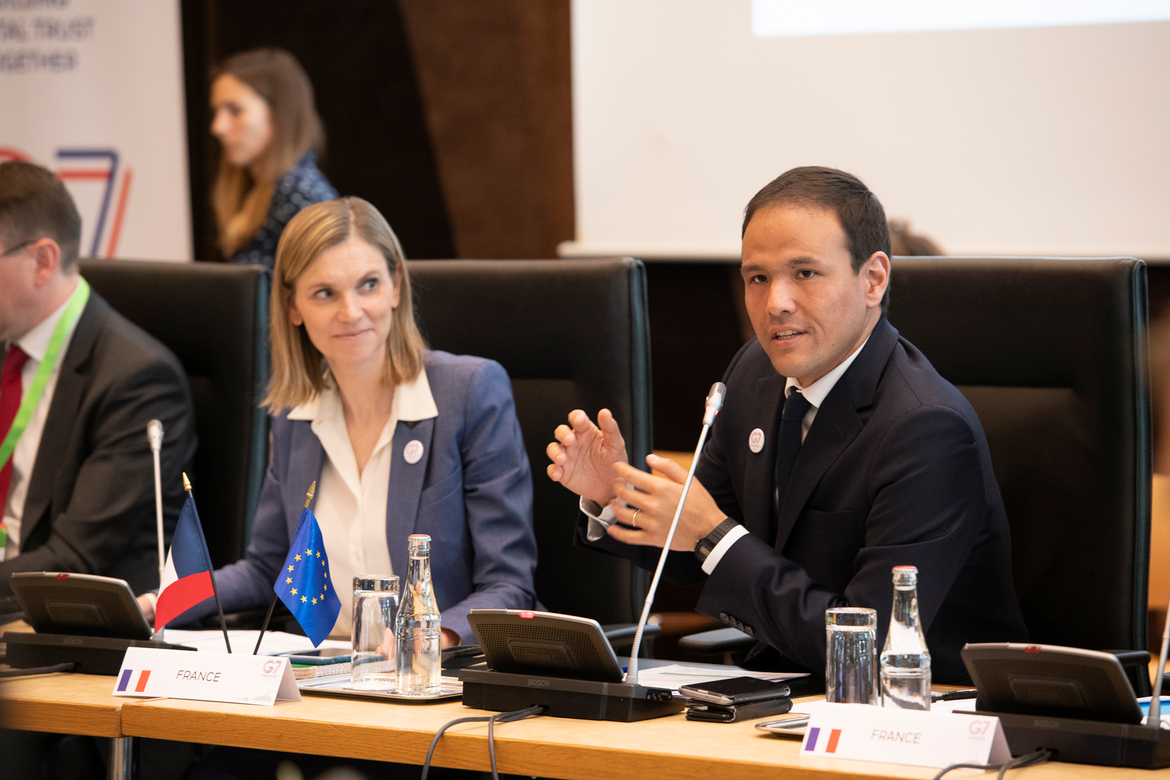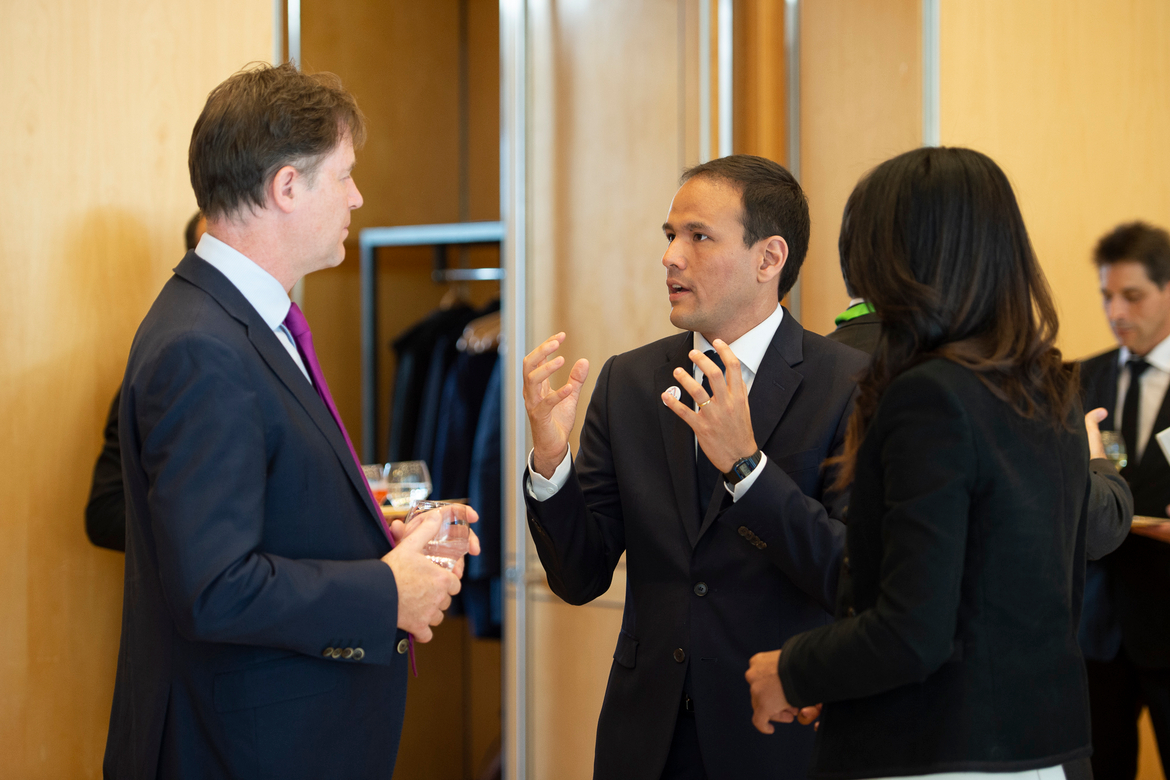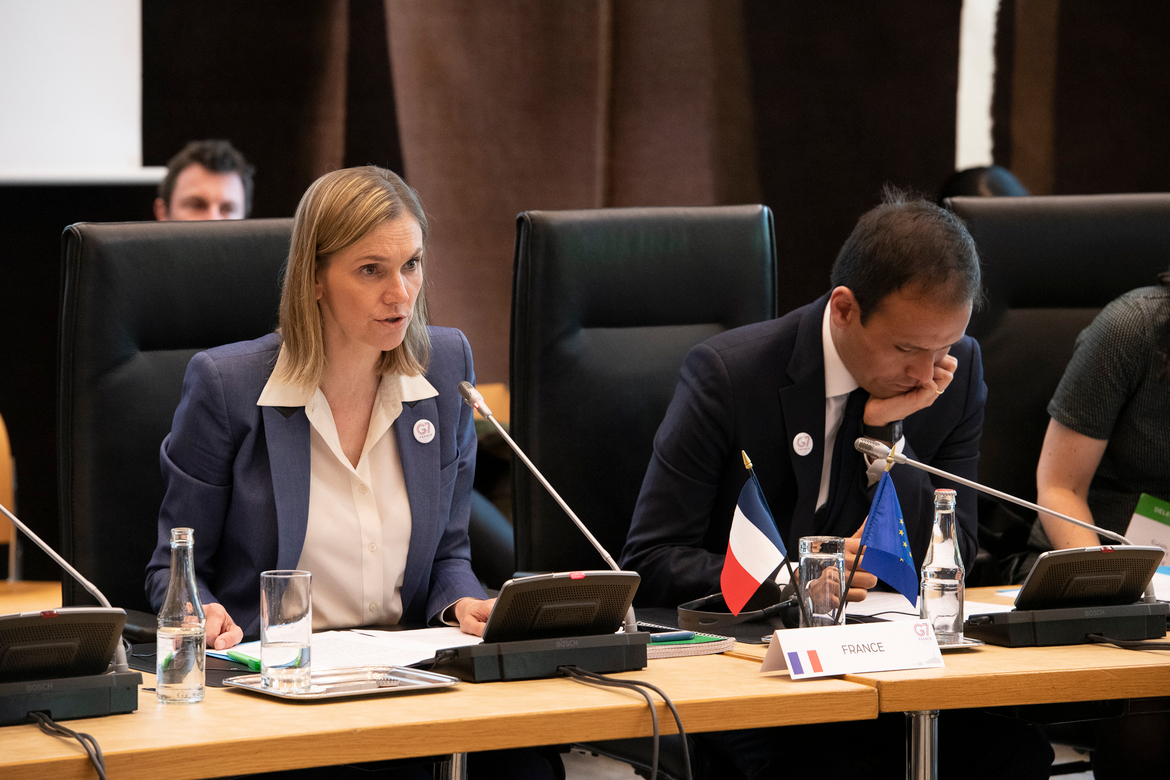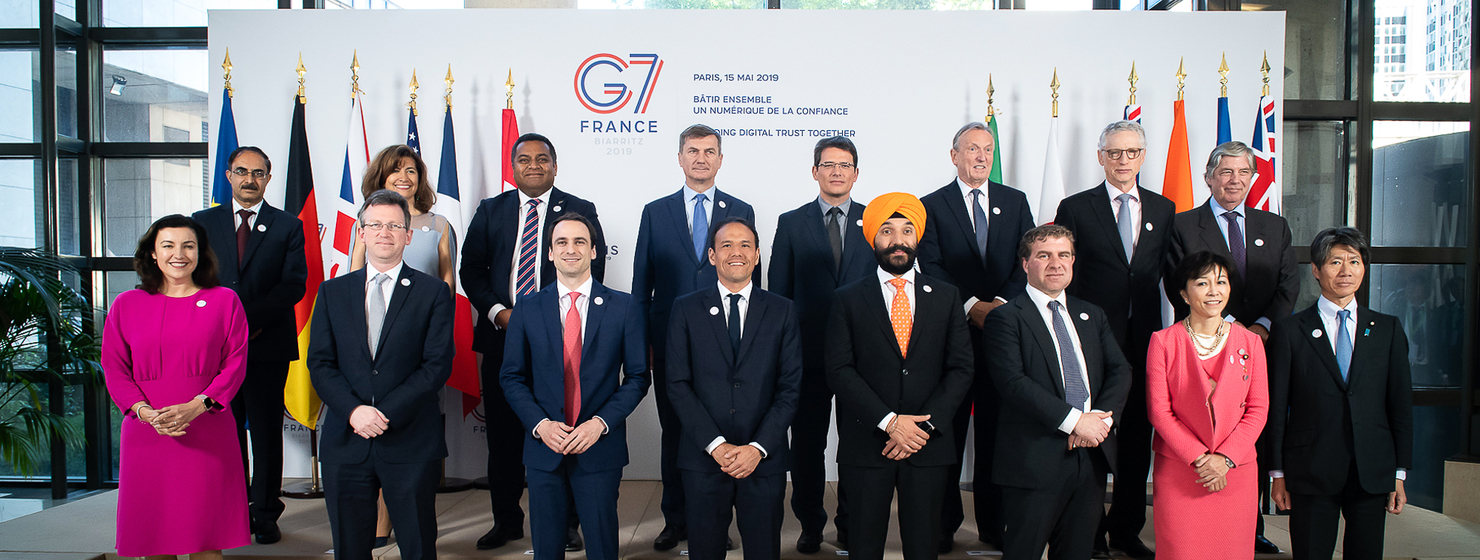On 15 May 2019, the digital technology ministers of G7 countries met in Paris under the presidency of Cédric O, Minister of State for the Digital Sector, attached to the Minister of the Economy and Finance and the Minister for Government Action and Public Accounts.
In order to ensure that the meeting was representative of the multiple realities of digital transformation and its cross-border nature, four major non-G7 democracies (India, Australia, New Zealand and Chile) as well as three international organizations (OECD, ITU and UNESCO) were invited to participate in this meeting and work alongside the Group of 7 Member States.
Digital technologies have the potential to contribute to the key goal of the French G7 Presidency: fighting against inequality. This Ministers meeting enabled significant progress to be made in the field with countries working on concrete deliverables around the following three areas:
1. Development of artificial intelligence (AI) technologies
The ministers at the meeting had fruitful discussions on the ways in which AI could help fight against inequality, for example by taking inclusivity into account in selecting data sets and developing AI technologies, but also by designing innovative AI applications in fields related to inclusion.
They also recognized the need to enhance international cooperation on AI to achieve these objectives and also debated the project to create an International Group of Experts on Artificial Intelligence (G2IA). This initiative, led jointly by the French President, Emmanuel Macron, and the Canadian Prime Minister, Justin Trudeau, received expressions of interest from Germany, Canada, France, Italy, Japan, the United Kingdom, New Zealand, India and the European Union. Discussions between G7 partners on the G2IA will continue up to the Biarritz Summit, where Heads of State and Government will meet from 24 to 26 August 2019.



2. Accountability of platforms in fighting dangerous content on the Internet
The G7 Ministers also discussed the fight against dangerous content online, particularly through accountability and transparency of online platforms, as well as the implementation of voluntary procedures by these players. They also debated the smart regulation approach as promoted by France in this field.
The draft Charter for an Open, Free and Safe Internet was central to the debate. With the implementation of this Charter, signatory countries as well as platforms and businesses in the digital sector, could make concrete commitments to step up their efforts to better fight and prevent the spread of dangerous content on the Internet. As for the G2IA, discussions on the draft Charter will continue up to the Biarritz Summit.
3. Confidence building in technologies and data-based infrastructures
During the working meeting dedicated to this issue, chaired by Agnès Pannier-Runacher, Minister of State attached to the Minister of the Economy and Finance, the countries and organizations present discussed the issue of confidence in data-based technologies and infrastructure, and more precisely issues regarding 5G and the free flow of data. This issue, which was discussed for the first time within a G7 meeting, received particular interest from the participants.
